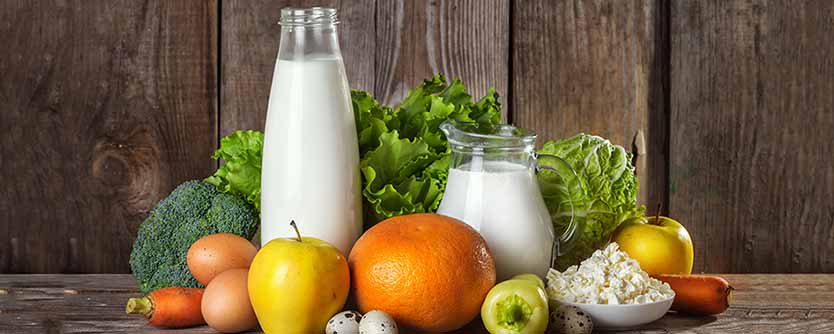Weight Loss Diet Myths vs Facts
[the_ad id=”6157″]
1 Myth: “NO Fat” Diet is healthy.
Fact: Fats are an essential part of healthy diet, what really matters are the types of fat we eat. Women need healthy fat in their diet to look and feel great. Fats are essentials for glowing skin, hair, and nails. Lack of healthy fat can lead to dull flaky skin, brittle nails and damaged hair. Healthy fats also contribute to boost the mood, promote healthy pregnancy and help in controlling the cravings. The sources of Polyunsaturated & Monounsaturated, the healthy fats include nuts (walnuts, almonds), seeds (flax, chia, pumpkin and sunflower) and beans.
2 Myth: I think regular consumption of milk and dairy products guarantee healthy bones.
Fact: Milk and dairy products consumption may not guarantee healthy bones. Adequate Vitamin D, regular exercise and consuming an ample amount of green leafy vegetables are equally important.
3 Myth: People with high blood pressure have nervousness, sweating, difficulty in sleeping and their face becomes flushed. I don’t have those symptoms so I must not have high blood pressure.
Fact: Don’t make the mistake of assuming that symptoms will alert you to the problem of high blood pressure. High blood pressure is often called “the silent killer”, which may or may not have any symptoms. It’s recommended that we all need to know our blood pressure numbers.
4 Myth: Thin people are healthy.
Fact: Yes & No. It is very much possible to have normal body weight but still have bad health or an opposite scenario of excess body weight but more or less healthy parameters. The more critical would be body fat percentage and waist circumference. Thin people may have higher fat percentage, so called the” skinny fat”. It is better to take all parameters into consideration and not just weight alone while assessing health and fitness levels.
5 Myth: Stress may be linked to high blood pressure and heart problem but it is never the reason for obesity or weight gain.
Fact – During stress cortisol levels increase which triggers a particular enzyme in the fat cells. However visceral fat cells (mainly around waistline) have more of this enzyme than the subcutaneous fat cells (for example, the fat on thighs and buttocks). Stress & cortisol cause more of fat deposition in visceral adipose tissues leading to belly fat or central obesity. Hence, stress has a direct association with obesity, especially central obesity.
6 Myth: Stress is inevitable. There’s little we can do to prevent or eliminate it.
Fact – Stress is not an inevitable part of life. A healthy lifestyle can be an essential companion for stress management. People can enhance their stress resistance by getting regular exercise, by eating a diet rich in a variety of whole grains, vegetables and fruits, and by avoiding excessive alcohol, caffeine and tobacco. Some other strategies include getting more and better quality sleep, meditation, yoga, cardio/resistance/relaxation exercises and addressing psychological/emotional issues.
7 Myth: Spices and herbs heat up your body and should be avoided in summer.
Fact: Spices provide all three beneficial effects combined together of keeping you warm in winter, cool in summer and providing healing benefits all round the year. Even few spices with the warm effects are good in summer, as they make your body hotter than surroundings resulting in sweat and thus inducing a cooling effect.
8 Myth: Spicy food is bad for the heart
Spices can make a food really heart healthy. Instead of adding the butter or sugar, make meals tasty with spices. Herbs and spices not only give flavor, add colour to the meal but also boost metabolism. Intake of cumin, garlic, turmeric, cinnamon and ginger has proven benefits for not only heart but whole body.
9 Myth: You don’t have to worry about getting dehydrated in the winter months.
Fact: Not true as blowers or room heaters lower indoor humidity which means the humidity from our skin and breath is lost to the dry air thereby creating a dehydrating effect for the body. The relative dryness of the outside air can cause you to lose body fluids. Chapped lips, dry eyes and irritated skin are all signs of dehydration. So whether working indoors or engaged in outdoor winter sports, be sure to drink plenty of water during the winters to avoid dehydration.

